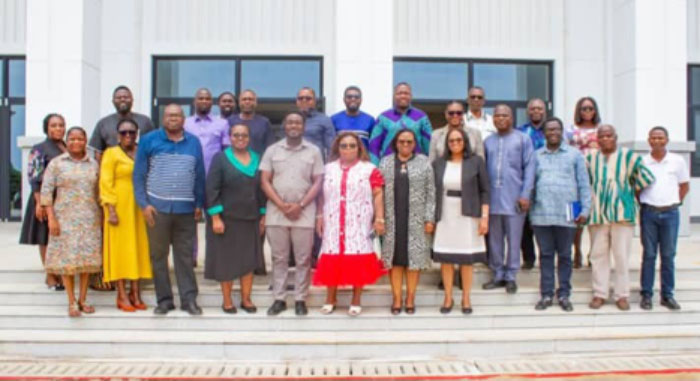Participants in group photograph
The Chief Executive Officer of the National Vaccine Institute, Dr. Sodzi Sodzi Tetteh, has stressed the crucial need for local vaccine manufacturing in Ghana, particularly as the country prepares to transition from Global Alliance for Vaccine Initiatives (GAVI) support by 2030.
“GAVI currently covers approximately 80% of the costs and distribution of vaccines for Ghana’s Immunisation Programmes,” Dr. Tetteh explained. “However, once Ghana reaches middle-income status, it will no longer be eligible for this support.”
Dr. Tetteh made these remarks during a working visit to the University of Health and Allied Sciences (UHAS), accompanied by representatives from the German Development Corporation (GIZ), UNIDO, and the European Union.
He highlighted UHAS’s vital role in vaccine development, praising the university’s significant progress in establishing a laboratory, simulation centre, and a team dedicated to vaccine research and development.
Dr. Tetteh urged funding agencies and relevant institutions to increase their investment in UHAS to help advance Ghana’s vaccine production goals.
“The progress made by UHAS so far is impressive,” Dr. Tetteh said. “I hope more funders will come together to support UHAS, enabling them to take their efforts to the next level.”
Professor Lydia Aziato, Vice Chancellor of UHAS, noted that while the university has the human resource capacity to undertake research and develop vaccines, it lacks the necessary logistics. She thus appealed for support to expand the university’s vaccine research and development capacity, which would help secure Ghana’s vaccine self-sufficiency.
She further noted that such support would enable researchers to transfer their knowledge to younger generations before retiring, as most of them are nearing the end of their service.
From Daniel K. Orlando, Ho


